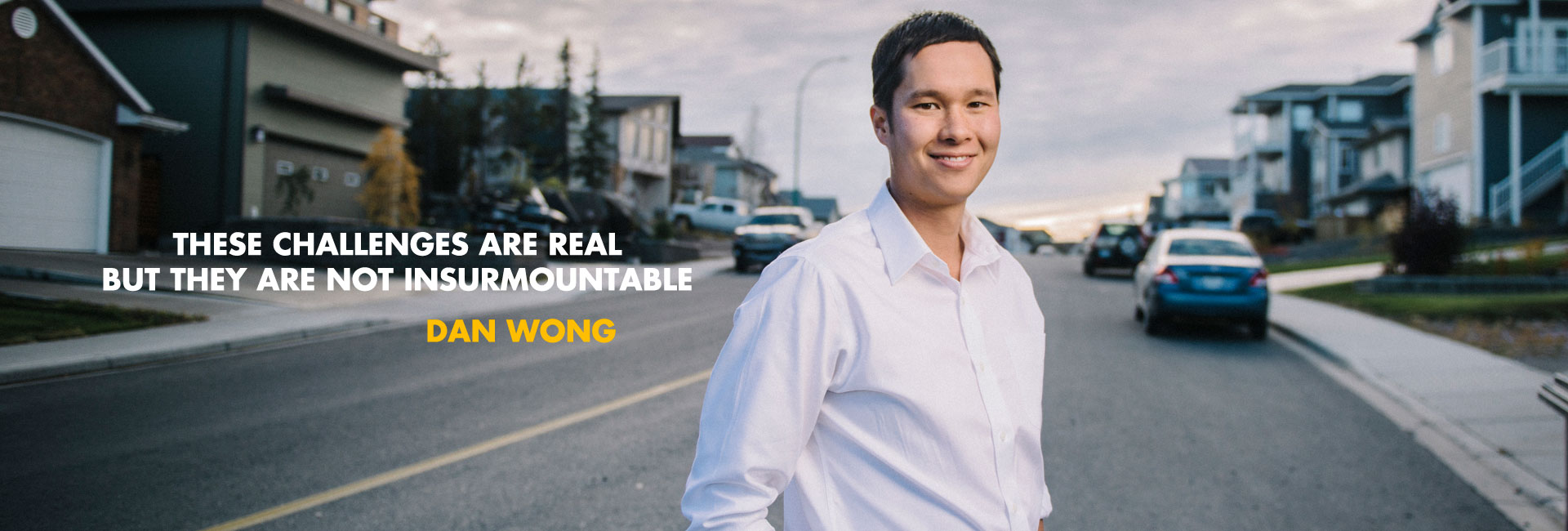
Building Healthy Communities
A strong local economy is founded on a strong community, not the other way around. Places with a high quality of life and workers who are healthy, well housed and educated attract more people and businesses. We must invest in these areas to build a strong local economy. We would be far better off making proactive investments to help people now, rather than paying later to address addictions, homelessness and unemployment.
Here's how we can do it:
Address Mental Health and Addictions
Work collaboratively on this important issue and be open-minded when considering innovative solutions.
Fight for the territorial government to take responsibility for mental health and addictions, and prioritize the funds we need to help people live more productive lives.
There are no easy fixes and no overnight solutions to mental health and addictions issues. It will take a multi-faceted, long-term approach to see measureable results to the visible social problems in Yellowknife and across the NWT.
We also know that we must work together. That means bringing everyone to the table to establish an action plan, including the City of Yellowknife, non-governmental organizations, the RCMP, the business community, the Crown Prosecutor's Office, doctors, nurses, public health officials and the general public.
If elected an MLA for Yellowknife North, I'll work collaboratively on this important issue and be open-minded when considering innovative solutions that have worked in other places. That's why I'm supportive of the Homes for our Homeless mobilization campaign by Yellowknife's Homeful Partnership and the Four Pillars Drug Strategy successfully used in Zurich based on: inter-agency cooperation, harm reduction, prevention, treatment and enforcement.
However, real action requires resources. If elected, I'll fight for the territorial government to take responsibility for mental health and addictions and prioritize the funds we need to help people live more productive lives. I believe we need to seriously consider investing in a mental health Housing First facility in Yellowknife, to provide follow-up support to those completing addictions treatment and expand culturally appropriate on-the-land healing.
Empower a university culture of post-secondary success
Work with Dechinta to achieve a bold expansion plan.
Reach out to potential partners to examine the feasibility of establishing a uniquely northern academic research institution in Yellowknife.
Four out of five new jobs in the NWT between 2015 and 2030 are expected to require post-secondary education and almost half will require a university degree. But right now, almost half of NWT job seekers have not completed high school, and only 6% have a university degree. Now is the time to invest in a more skilled labour market ready to take on new opportunities.

Since 2010, Dechinta Bush University Centre for Research and Learning has delivered land-based university programming in the Akaitcho Territory. To date, 97% of the students attending Dechinta are Aboriginal, 72% of which are women. With a 0% dropout rate, Dechinta graduates have found jobs never before offered to them. If elected, I'll work with Dechinta to achieve a bold expansion plan to add 440 university graduates to our workforce by 2030 and create 153 jobs in all 6 regions of the Northwest Territories. I want MLAs to take a hard look at Dechinta and consider increasing its budget. This will not only allow Dechinta to expand but pursue long-term endowment funding from private sources for its long-term sustainability.
Among all the talk in recent years about expanding post-secondary academic programming in the Northwest Territories is the idea of a "University of the North", based in Yellowknife. For many southern communities that are Yellowknife's size, universities and colleges have become foundations of the local economy, helping attract and retain new residents and businesses. Aurora College is also looking to relocate and expand its campus here. The coming together of discussions around a potential university, a stand-alone campus for Aurora College and the establishment of a northern research centre provide a unique opportunity to use knowledge as a resource and local job creator. If elected, I would reach out to potential partners to examine the feasibility of establishing a uniquely northern academic research institution in Yellowknife.
Housing First
Stand up for a Territorial Housing Strategy based on Housing First principles.
Work tirelessly to find territorial support for the proposed AVEN Pavilion.
Seek a long-term, permanent commitment by the federal government to housing.
I pledge to support a Territorial Housing Strategy based on Housing First principles. Housing First is a proven, recovery-oriented approach that centres on quickly moving people experiencing homelessness into independent, permanent housing, and then providing additional supports and services as needed. This strategy will guarantee dignity and support for Canadians at the margins of our society, and will help address homelessness while at the same time reducing the burden on our emergency and health services. As a Yellowknife City Councillor, I supported a Housing First plan that saw the NWT's first transition home for homeless youth open in Yellowknife this year.
Medicine Hat shows that Housing First works. Since 2009, 885 formerly homeless persons have been housed, 73% of 'Housing First' clients completed the program, 91% of those live in market housing or subsidized housing
Our Territorial Housing Strategy will address the continuum of needs—from social housing for the poor or those dealing with mental health and addiction problems, to the market failures depriving those with even a decent income access to the affordable housing they need.
Over my three years on City Council, I've been a strong supporter of affordable housing in Yellowknife. I voted in favour of assistance for the Habitat for Humanity build and ReStore project, planning for a future tiny home neighbourhood, and cutting through the red tape on secondary suites. If elected as MLA, I'll continue to support affordable housing because I believe that when we help to improve people's housing conditions we are building stronger local economy that benefits all of us.
That's because housing is more than putting a roof over heads. For example, when families who had moved into social housing in Greater Vancouver and the Okanagan were surveyed, roughly half reported that educational outcomes had improved for their children. A survey of Habitat for Humanity homebuyers produced similar findings, with participants reporting across-the-board improvements in their children's well-being and school performance after they moved into their new homes – including improvements in confidence, social life, grades, behaviour, enjoyment of school and attendance. With higher education comes higher income that brings in more taxes as government revenue, as well as additional disposable income for spending in the northern economy.
We also know that investment in housing directly creates jobs and growth. In 2012, the NWT Bureau of Statistics issued a report on economic multipliers. They found that construction creates 3.5 person-years of employment per million dollars of output, higher than mining and oil and gas extraction, utilities, and finance/real estate. For these reasons affordable housing is an opportunity to build the construction industry that already employs 1800 workers across the NWT and is the fourth largest private sector employer.
The need for housing is greater in the NWT than in the rest of Canada but the cost to build and maintain housing is also greater in the NWT than in the rest of Canada. In fact, the territorial government pays more than 25 times per capita on housing than the norm in most Canadian provinces. That's why if I'm elected, I'll seek a long-term permanent commitment by the federal government for Housing First projects. In the short-term, I'll work tirelessly to find territorial support for the proposed AVEN Pavilion, a 55,000 square foot, two-storey facility in Yellowknife that will include more long-term care beds for seniors and elders who need a higher level of support as they age. To ensure lasting change, I understand the urgent need for the territorial government to make enough land available for municipalities to meet housing demand and avoid housing stagnation.

If folks can't afford to live here, they won't. If we want to bring more residents into the NWT, we need to make progress on affordable housing. In a 2014 survey of mining employees, over 80% of those respondents who had never lived in the NWT considered the cost of housing and utilities as a major concern when considering relocating to the NWT.




